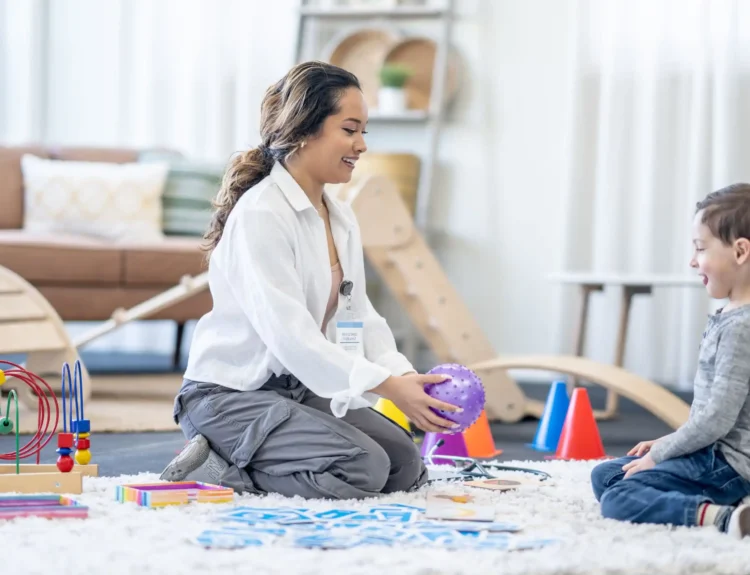The intersection of personalized care and technological advancements has revolutionized the concept of a therapist match in mental health services. As this landscape evolves, many clinicians and clients see the benefits of care matching, which tailors therapeutic relationships to meet the individualized needs and preferences of those seeking help. Instead of relying on a one-size-fits-all approach, care matching considers the complexities of human behavior and emotions to ensure each client is paired with the most compatible therapist.
The Importance of Personalized Mental Health Care
Individuals access mental health services carrying with them a tapestry of life experiences, cultural influences, and personal beliefs. The therapy process is not merely about symptom management but a journey towards understanding, healing, and self-discovery. Personalized care, which is attentive to these unique attributes of individuals, has been shown to significantly enhance engagement with treatment and improve the chances of successful outcomes. Matching clients with therapists based on personality, therapy preferences, and mutual understanding helps establish a strong therapeutic alliance, which is a critical determinant of success in therapy.
The effectiveness of therapy increases manifold when clients genuinely resonate with their therapist’s approach and feel genuinely understood—something that standardized treatment processes may not adequately address. Tailoring the therapeutic experience to the individual’s needs enables a more profound level of trust. It facilitates a space where open and meaningful dialogue can flourish, leading to more effective resolutions and personal growth.
Components of an Effective Care Matching System
An effective care matching system is comprehensive; it considers many factors ranging from demographics and language to the more intricate elements like communication style, psychological theories, and therapist expertise in particular conditions. Leading systems incorporate a multi-dimensional assessment that aligns with the clients’ needs. They facilitate matches based on shared values, personal experiences, and even therapeutic goals. This ensures an alignment in the approach to therapy and, ultimately, a better fit that fosters a productive therapeutic outcome.
Advancements in digital health and psychological assessments have led to sophisticated algorithms that enhance the accuracy of therapist-client pairings. By assimilating vast amounts of data, including but not limited to previous treatment outcomes, client preferences, and therapist strengths, these digital systems optimize matches that foster the best potential for therapeutic progress. This technology-driven methodology reduces the traditionally involved guesswork and subjectivity in the therapist selection process, offering greater precision and customization in care matching.
Evaluating the Impact of Therapist-Client Compatibility
Compatibility between a client and therapist is a nuanced concept that transcends beyond tangibles like shared experiences or academic qualifications. It delves into the domain of interpersonal dynamics, which dictates the rhythm and depth of therapeutic interaction. An optimal match is one where the client feels comfortable enough to be vulnerable and the therapist is adept at making that space safe and conducive to healing. Research validates that the therapeutic alliance’s strength significantly dictates the therapy’s effectiveness and is a reliable predictor of clinical outcomes.
The success of a therapeutic relationship can be gauged through tools that assess the quality of the therapy alliance—a concept established within the industry that encapsulates the collaborative nature of a therapy engagement. Such assessments provide valuable feedback and illuminate cases where the therapeutic progress is not as anticipated. In embracing the importance of compatibility, the mental health community recognizes that the right therapist match can be the differentiator between a client’s progress and stagnation.
Utilizing Client Feedback in the Matching Process
The voice of the client is paramount in evolving the care matching process. Feedback, whether given informally during sessions or formally through surveys and assessments, is invaluable for understanding what works and what might be improved. This direct insight provides a client-centric perspective that is critical in fine-tuning care matching systems to meet clients’ needs better.
Importantly, a feedback loop not only leads to more effective matching algorithms but also empowers clients by actively involving them in shaping their therapeutic journeys. Through reflective methods, such as post-session questionnaires or feedback portals, clients have a tangible impact on the continuous improvement of care matching, fostering a partnership approach to therapy.
Continuous Improvement of Care Matching Models
As with any service, the field of care matching is not static—it demands constant evaluation and refinement. Emerging research and methodologies supplement existing knowledge and provide the impetus for continued development. By analyzing outcome data and integrating client feedback, care matching models can become more nuanced and effective over time.
Research and client experiences synergize to enable these systems to evolve, with novel algorithms and increased data sets leading to more precise therapist-client matches. Such improvements are a boon for the therapeutic community, ensuring that the hierarchy of client needs is better understood and met with each iteration of the care matching system.
Professional Development for Therapists in Care Matching
Therapists are at the core of the care matching process. Therefore, professional development to enhance therapists’ understanding of care matching principles is crucial. Training programs, ongoing education, and access to current research equip therapists with the knowledge and skills necessary for participating in comprehensive care matching systems. This implies that therapists must actively learn new strategies for building relationships and understanding client needs to tailor their approach effectively.
Therapists’ commitment to professional growth in this area is essential for the success of care matching systems. This dedication to learning ensures that therapists remain at the cutting edge of their practice, ready to leverage the latest insights in client care, enriching the therapeutic experience for themselves and their clients.



